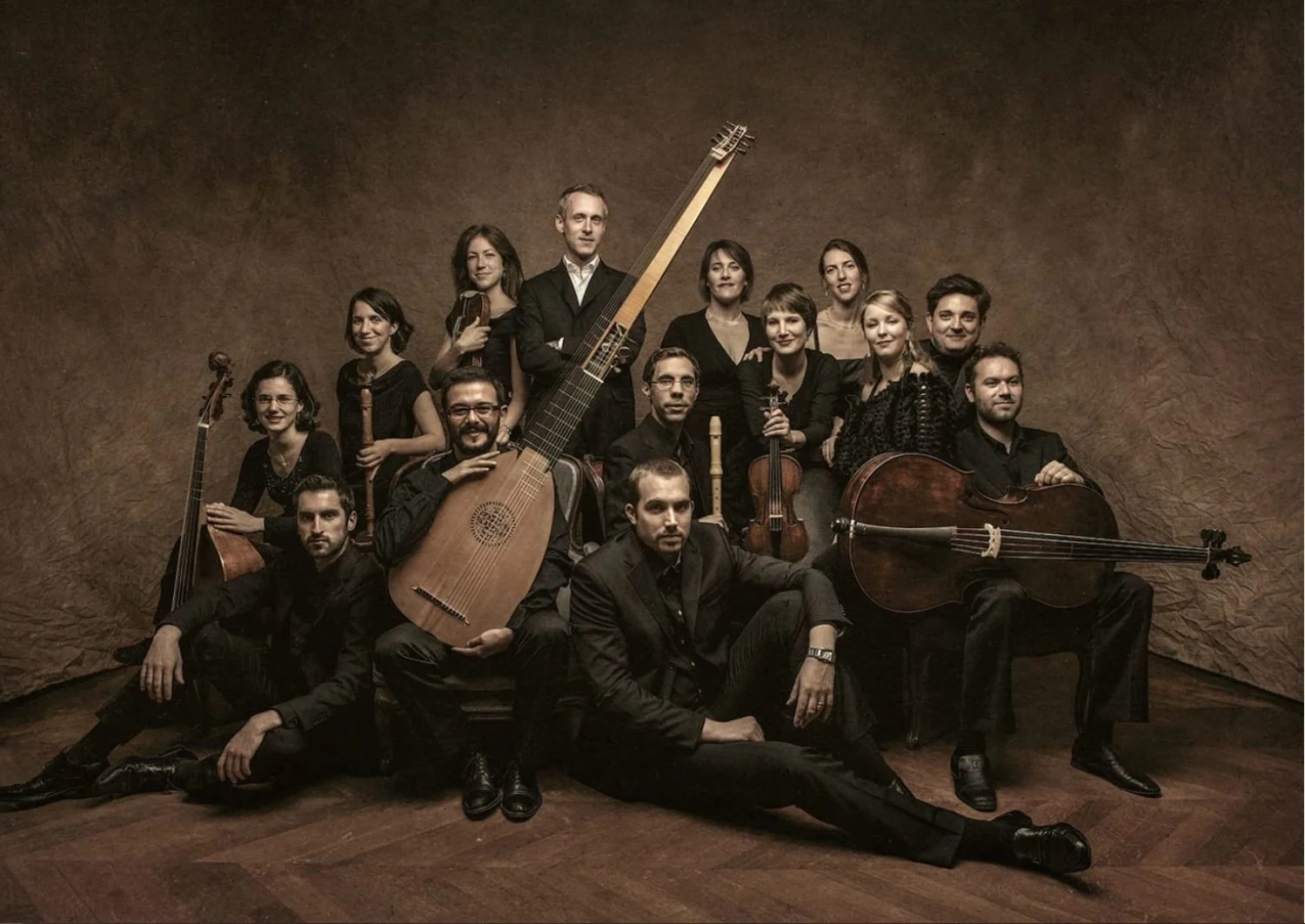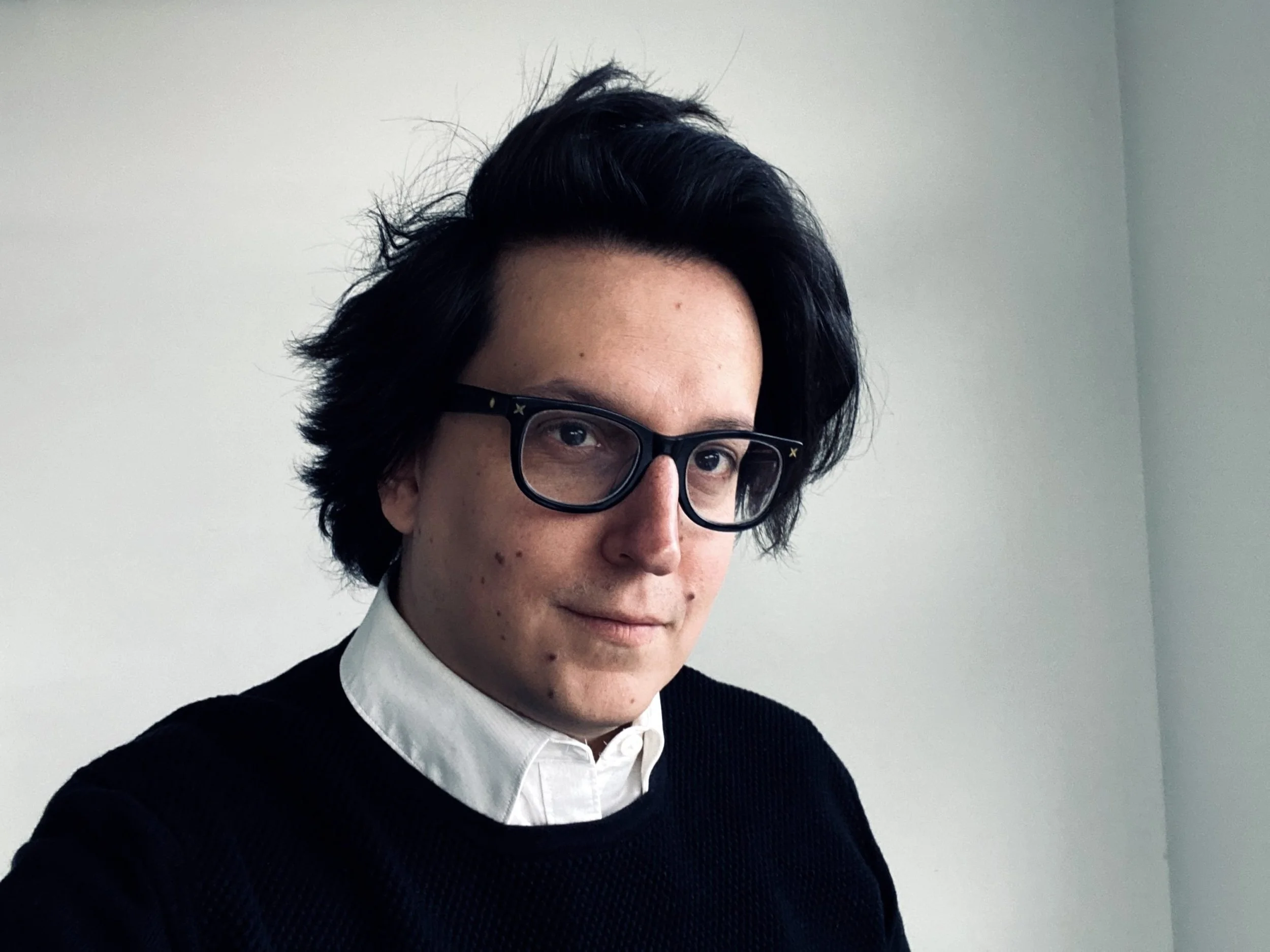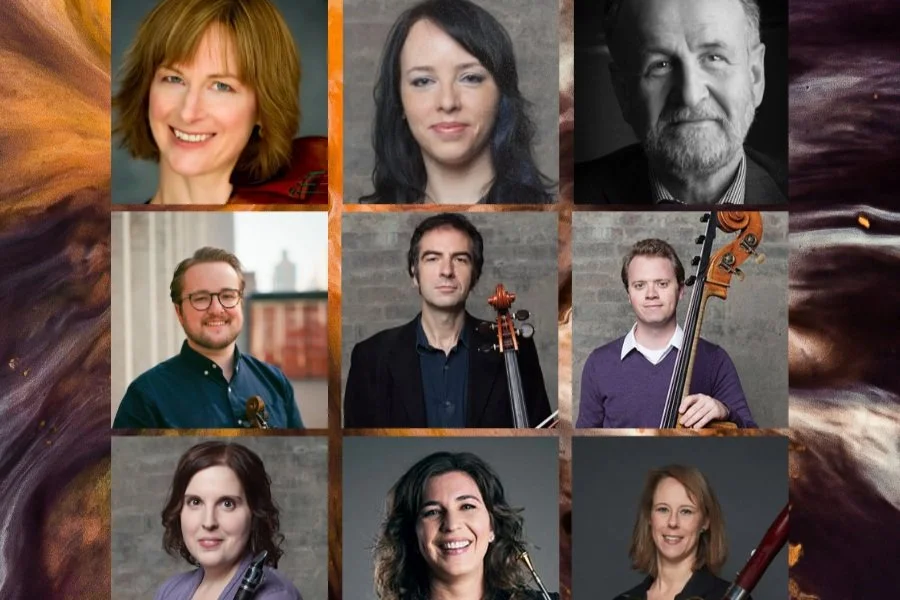France's Ensemble Correspondances takes baroque court music to the people
Les Plaisirs du Louvre gives Early Music Vancouver audiences the French royal treatment
Ensemble Correspondances’ populism is in service to music that, centuries ago, was aimed squarely at the elite.
Early Music Vancouver presents Les Plaisirs du Louvre at the Chan Centre for the Performing Arts on May 6.
ENSEMBLE CORRESPONDANCES artistic director Sébastien Daucé knows how to turn a trauma into a triumph: when the COVID-19 pandemic hit, he not only managed to keep his baroque chamber-music group on the road, he realized a long-standing dream.
As the accomplished conductor, keyboardist, and scholar explains in a lively telephone call from Paris, his desire to take historical music to the people first took shape when he moved to rural Burgundy, in central France, a decade ago.
“Around my little house there are a lot of beautiful churches of the 10th century, of the 11th century,” he explains. “And every summer I think my dream would be to just stop everything for one month and come with 10 musicians, and a donkey or two horses for our instruments, just going from one village to another, one church to another, playing each evening.”
Granted, Daucé has yet to completely fulfill his vision of trekking though vine country, but a 2021 residency in Normandy allowed him to put Phase One of his plan into action.
“We were 10 musicians—the same 10 who will play in Vancouver—and those musicians were on a bike for 19 days, every day running something like 50 kilometres, and then arriving, explaining the music to children, then a concert, and then dinner,” he says. “I can assure you that it was great, absolutely great!
“We have a lot of people who still think that a theatre is not for them, a concert hall is not for them,” he continues. “But when you play this way, they go ‘Who are these musicians? Classical musicians coming by bike to our little castle or our little church?’ It was special also for the audience to discover that classical music really is for them—and just seeing us on our bikes, I think, has changed a lot.”
Ironically, Daucé’s pedal-powered populism is in service to music that, initially, was aimed squarely at the elite. When Ensemble Correspondances plays the Chan Centre for the Performing Arts next Friday (May 6), it will present music that would originally have been played for Louis XIV and his courtiers. Les Plaisirs du Louvre surveys a host of French composers, most notably Louis Couperin, who were on the royal payroll, and spans a compressed version of the monarch’s day, from the music that would have accompanied his rising and his various state functions to the sounds he would have heard when retiring for the night.
The Louvre, Daucé explains, “was a great royal residence here in the 17th century. Not the only one, because the court was always moving from one house to another, but maybe the Louvre was the most important one, because it’s so huge. And in this palace music was absolutely everywhere. You had music in the great halls, you had music outside for equestrian games, and you had music very close to the king.
“When we say la chambre du roi, it’s not the sitting room, it’s not the bedroom,” he continues. “There is a bed, but this bed is only to demonstrate something beautiful; beautiful furniture. This is also the place, quite intimate, for selected people of the court, those very close to the king. And in this place—which is, I don’t know, something like 100 square metres—you had maybe 10 singers, seven instrumentalists, and they would play as soon as the king asks. The music they were playing is mainly airs de cour, like songs: very delicate poetry, and soft music. Very simple, so everyone can understand it, everyone can memorize it. But the singers of this time, who were very sophisticated, they all improvised ornaments for each step of the poetry. So this was simple yet refined music.” (See the trailer below for an idea.)
Or so Daucé surmises. Ensemble Correspondances’ work, he allows, is not so much re-creating the music of the 17th century as reinventing it. Ninety percent of the era’s written music was burned or otherwise destroyed during the French Revolution, he estimates, which makes assembling a program such as Les Plaisirs du Louvre a combination of detective work, scholarly research, and intuitive leaps.
Leaps, in fact, much like the one he was making just before picking up the phone. “Right now I’m on the Île Saint-Louis, in the very heart of Paris, in a beautiful hôtel particulier that was built in 1640,” he points out. “And I was just wondering how it sounded here four centuries before. What could you hear? I see the light, which is probably the same. I see the beautiful architecture, which is probably the same. And I was just asking ‘What could the people living here four centuries before hear?’
“It’s not like I’m unhappy with the style of today,” he continues. “I love it. But it’s a good exercise to imagine how a place sounded before. I do research with historians, with musicologists, with everyone who can give me some scientific information. I love that; I love collecting a lot of information. And then from this information I can build something new for the 21st century.”















